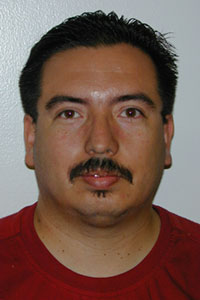Sports and steroids: baseball league comes
out swinging

By Anthony Galaviz
The Collegian |
Major League Baseball is doing
the right thing.
MLB implemented a steroid policy at the beginning of the 2005 season.
As a result, MLB suspended seven players, including Baltimore Orioles
star Rafael Palmeiro who was suspended Aug. 1. The same Palmeiro who told
a congressional committee in March, “I have never used steroids.
Period.”
The Orioles told the star he’s no longer welcome on the team. Palmeiro
claimed that a vitamin he received from teammate Miguel Tejada caused
the positive steroid test.
Um, Okay. That’s a good one. Point a finger at your own teammate.
The Health Policy Advisory Committee, which oversees drug agreement in
MLB, squashed that claim by Palmeiro.
“There is no evidence whatsoever supporting any claim that Miguel
Tejada has ever provided any illegal substance of any kind to any player,”
the committee said.
What do you tell little leaguers who look up to these baseball players?
MLB players are supposed to be role models. That’s how I felt when
I was in Little League.
MLB outlined its steroid policy: first-time violators suspended for 10
days; second time 30 days; and a third time results in a suspension for
60 days.
The fourth positive test will constitute a one-year suspension.
The steroid policy came about after the Bay Area Laboratory-Co-Operative
(BALCO) scandal, during which many allegations were made that top baseball
players had used illegal performance enhancing drugs with the help of
BALCO founder Victor Conte.
Besides Palmeiro, Rafael Betancourt (Cleveland Indians), Juan Rincon (Minnesota
Twins), Jamal Strong (Seattle Mariners), Agustin Montero (Texas Rangers),
Jorge Piedra (Colorado Rockies) and Alex Sanchez (Tampa Bay Devil Rays)
were suspended for 10 days.
Former Oakland Athletics star Jose Canseco cited Palmeiro as a steroid
user in his tell-all book. Canseco also testified before Congress that
he injected Palmeiro with steroids.
Is Canseco telling the truth? Apparently MLB had enough. Clearly, MLB
is sending a message to baseball players, not only in MLB, but in the
minor leagues. Thirty-eight minor league players were suspended on April
4 this season.
MLB Commissioner Bud Selig proposed stiffer penalties for violators in
a “three strikes and you’re out approach” to doping.
Instead of a 10-day suspension, the commissioner wants a 50-day suspension
for first time violation, 30 days to 100 games for second-time offenders
and 60 days to a lifetime ban for a third.
A new drug-testing agreement may be imminent by the end of the World Series,
which begins Oct. 22 and ends on Oct. 30.
Good for the commissioner, but I have a suggestion. How about first time
violators be suspended for a year? At least that will get the message
across and end doping.
Point is, you need to set an example for baseball players in Little League,
Babe Ruth, high school and college. Show a good example, don’t taint
the game. After all, it’s the little leaguers who are the future
of baseball.
Clearly, MLB realizes that.
Comment
on this story in the Opinion forum >>
|
